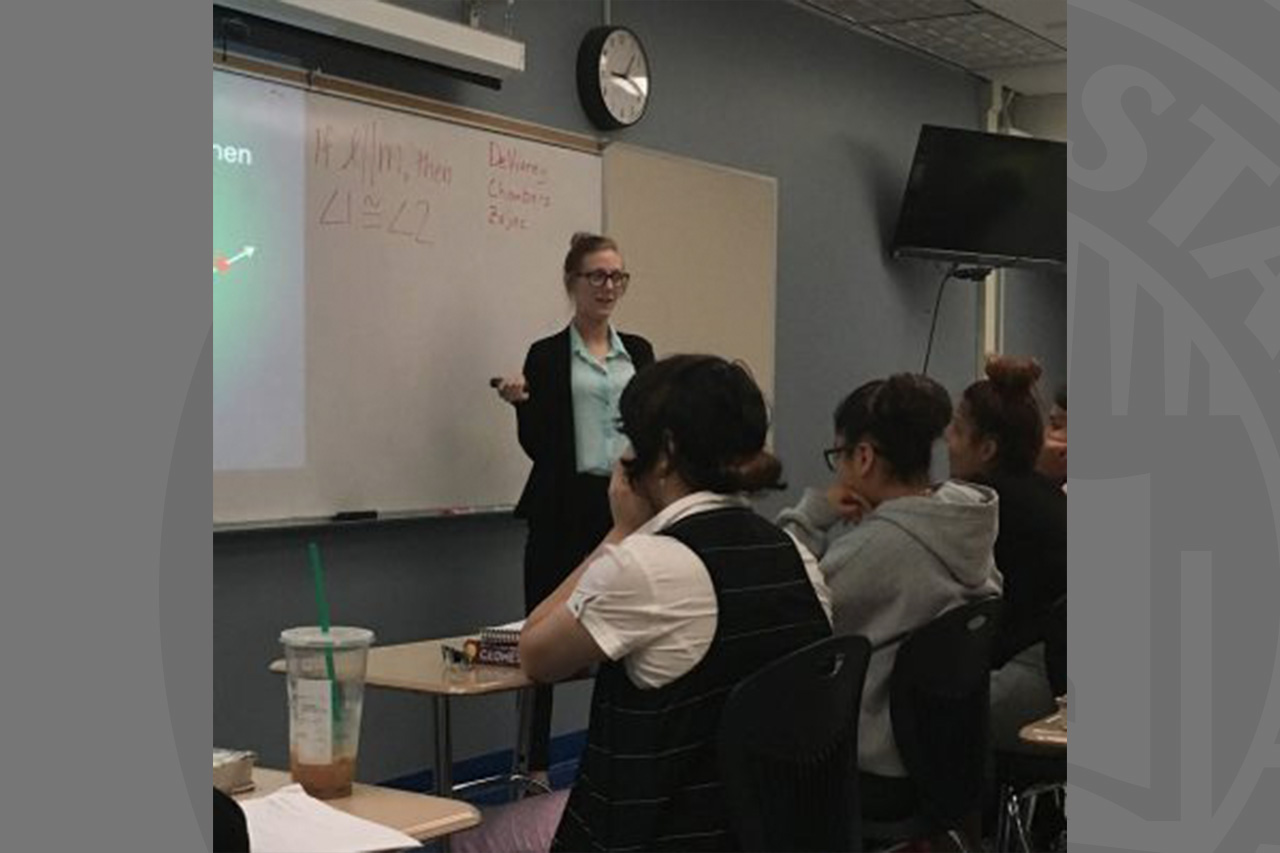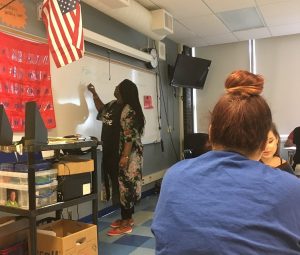Peter Auffant was hired as the principal of Mather High School in February 2016. He’s a community-minded school administrator who understands the value of the Chicago Teacher Education Pipeline, particularly the Summer Teacher Education Partnership for Urban Preparation (STEP-UP) program. He immediately signed on to having three STEP-UP Fellows teach at Mather this summer as an opportunity to further connect the school to the wider Albany Park community. He explains, “The Fellows offer a unique, fresh perspective to our practicing teachers. They bring the community into the classroom and contribute knowledge and resources our students and educators wouldn’t otherwise have access to.”
Auffant respects Illinois State University’s commitment to urban education, Chicago Public Schools, and the communities with which it partners. He believes the structure and intensity of the STEP-UP program provides Fellows with a firm understanding of the community where they are living, teaching, and working. In turn, the Fellows’ desire to undergo such a program exhibits their commitment to become effective, community-minded urban educators.
STEP-UP Fellow Allie Zajac is teaching geometry at Mather this summer under the supervision of Dale Devinney, who has been a math teacher at the school for 20 years. Observing Zajac in front of the class, she is confident and in command, but also humorous. She does a little dance to explain parallel angles, while simultaneously soliciting answers from her students. She offers multiple clear explanations for each concept, often providing metaphors that are applicable to students’ lives. One of her students says, “Ms. Zajac is very good at explaining problems. She explains in different ways so we can all understand. She also gives good examples.”
Zajac acknowledges the need for multiple means of representation in her classroom to cater to its great diversity. She considers issues like race, culture, language, skills, and socio-economic status. Zajac expresses with delight, “I love this teaching placement. I enjoy having to adapt lessons on my feet and explain new concepts when they arise. I’ve been thrown into a really dynamic environment.”
She also thinks living in the same neighborhood as her students is a an effective way to engage with them. “I see so many of these teenagers on my commute!” says Zajac. Devinney recognizes Zajac’s ability to empathize with students, and appreciates the range of experience STEP-UP provides. “It certainly prepares pre-service teachers to address the diversity of abilities and cultures in classrooms like Mather’s,” he says.
Jessica DeVos, a math major, is teaching Algebra at Mather this summer under the supervision of Henry Rahana. DeVos points out the challenge of teaching a semester full of content in 22 days in grueling three-hour intervals. Despite the structure of summer school, DeVos is intent on instilling confidence and motivation in her students, while encouraging class participation. She strives to accomplish these goals by building relationships with her students. Her strategies include learning all of her students’ names and connecting with them as people. Getting to know students provides her with insight into their learning styles so she can then encourage them to bring together their base knowledge with class content. DeVos describes the support she receives from her host family as being integral to her success in the classroom. “My host mom is fantastic,” she beams. “She informs me of the demographics of the community, which provides me with an understanding of my students’ identities and experiences.”
Second-year STEP-UP Fellow Faith Overall is thrilled to be teaching English at Mather this summer under the supervision of Jessie Moskowitz. After spending last summer teaching in an elementary school, she was excited to return to the high school classroom and dig deeper. Overall has little trouble connecting with students, which she attributes to the class content and the strong rapport her cooperating teacher has with the class. Overall appreciates both the support and freedom she receives from Moskowitz, and includes that all the staff has contributed to making the school an open and welcoming environment for students.
While Overall humbly points to her cooperating teacher as the reason for her success in building classroom community, she’s a natural in front of the class and has clearly gained student trust. The lesson she planned and implemented focused on writing poems and exhibited her ability to inspire student success. Overall circulated the room, called students by name, and praised their compositions. She solicited specific content knowledge, while simultaneously encouraging personal expression. She humorously demanded the class to support their classmates as they recited their poems, and together as a class they celebrated the readings.
All of the Fellows spoke about the difficulty in teaching 40-plus students in one classroom, and the frustration of not being able to provide one-on-one support. In addition, STEP UP’s rigorous schedule leaves limited time for lesson planning. Despite these structural challenges, they are thriving, due in large part to one another. Overall says having other Fellows to speak to about the successes and challenges of her lesson plans and experiences in the classroom have been paramount in her becoming a better urban educator: “We have formed a teacher community, in which we are learning from and growing with each other.”


